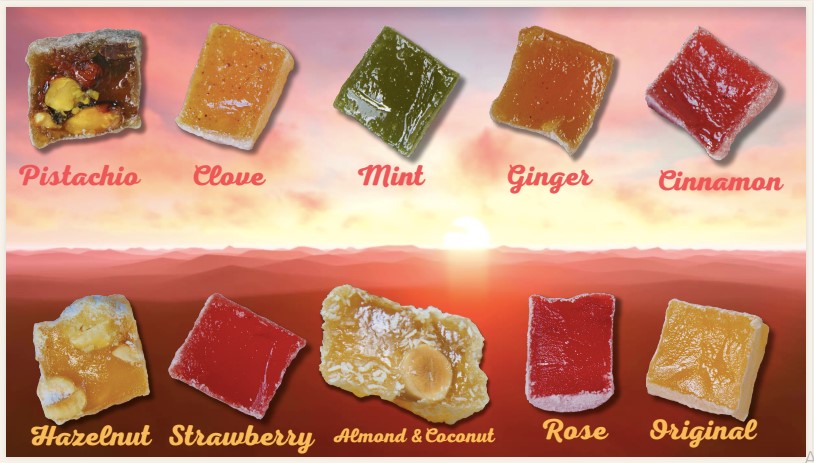
Indulgent, delicate, and utterly irresistible – Turkish Delight has captivated taste buds around the world for centuries. This sweet treat, with its soft and chewy texture infused with exotic flavors like rosewater and pistachio, has become a global sensation. But how did this Middle Eastern confection conquer palates far beyond the borders of Turkey? Join us as we explore the fascinating journey of Turkish Delight’s rise to fame, from ancient times to its current status as a beloved international delicacy. Get ready to embark on an adventure that will leave you craving a bite of this delectable delight!
Turkish Delight, also known as lokum, is a popular confectionery treat that has gained widespread popularity in many countries around the world. However, it was not until the introduction of Sultan Turkish Delight that this sweet delicacy truly captured the hearts and taste buds of people everywhere. Made with traditional methods using high-quality ingredients, Sultan Turkish Delight offers a unique and irresistible flavor experience.
The brand’s success can be attributed to its delicate balance of sweetness and chewy texture, making it an instant hit among those who have tried it. As word spread about this delectable treat, demand for it rose significantly in other countries as well. Today, Sultan Turkish Delight continues to gain popularity worldwide and remains a beloved dessert for many.
Turkish Delight has been a beloved confectionery for centuries, but it wasn’t until the rise of pop culture that its popularity truly skyrocketed. One specific brand, Sultan Turkish Delight, has become synonymous with this sweet treat and owes much of its success to the impact of pop culture.
With appearances in movies, TV shows, and books such as “The Chronicles of Narnia”, where it was portrayed as a magical and highly coveted dessert, Sultan Turkish Delight gained a cult following among fans. The packaging design also played a significant role in its popularity with its vibrant colors and unmistakable logo becoming iconic symbols in popular culture.
As a result, Sultan Turkish Delight has not only become one of the most sought-after treats by those familiar with Middle Eastern cuisine but also an exotic delicacy desired by many who have been introduced to it through various forms of media.
Thanks to pop culture’s influence on our tastes and desires, this traditional delight from Turkey continues to captivate people all over the world.
Turkish Delight, also known as “lokum,” is a popular sweet treat that originated in Turkey. While it may be tempting to indulge in this confection purely for its delicious taste and unique texture, it actually offers several health benefits and nutritional value. Made with natural ingredients such as sugar, cornstarch, and fruit juices or extracts, Turkish Delight contains no artificial additives or preservatives. It is also low in fat and cholesterol-free, making it a guilt-free indulgence.
Additionally, some varieties of Turkish Delight are made with pistachios or other nuts which provide protein and healthy fats. The inclusion of fruits like pomegranate or apricot adds antioxidants to the mix, promoting overall wellbeing. Whether enjoyed as an occasional treat or incorporated into a balanced diet, Turkish Delight can satisfy your sweet tooth while providing some essential nutrients at the same time.
In conclusion, Turkish delight has become a beloved and iconic confectionery worldwide, with its popularity reaching every corner of the globe. Its rich history, unique ingredients, and irresistible taste have contributed to its success in various cultures and cuisines.
As we explore new tastes and flavors from different parts of our interconnected world, let us not forget about these timeless treasures like Turkish Delight that connect us back through time-honored recipes passed down from generation to generation.